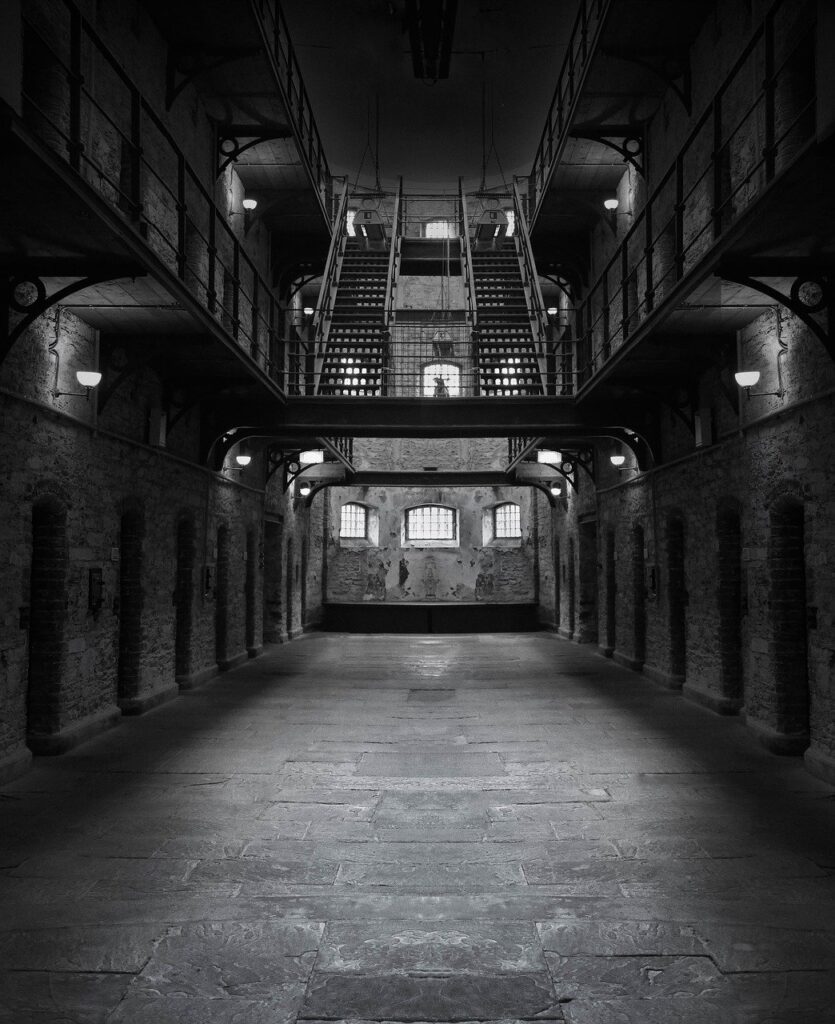Two men who headed up an international criminal network responsible for laundering £70 million, £10m of which came from fraudulent Bounce Back Loans, have been jailed for a total of 33 years.
Artem Terzyan, 38, from Russia and Deivis Grochiatskij, 44, from Lithuania, were the focus of a four-year investigation by the Organised Crime Partnership – a joint National Crime Agency and Metropolitan Police Service unit.
Their sentences are believed to be some of the largest ever handed down for money laundering in the UK.
The OCP’s investigation began in October 2017 when surveillance officers watched Auriel Zylyfi place a large bag of cash in an Audi at a money counting house in North West London.
A month later another man, Artur Terziu, was seen handing over £40,000 to Zylyfi in the underground carpark of his flat in Hazlemere Court, Hendon. Both men were arrested and each sentenced to a year in prison.
OCP officers searched Zylyfi’s flat and seized a ledger detailing money laundering transactions in excess of £7m over a four-month period.
Over the next seven months the same Audi travelled extensively around the UK, stopping briefly at lorry parks and service stations to collect cash before returning to London.
It was regularly driven to Munning House in Docklands, East London, where Terzyan and Grochiatskij both lived in flats next door to each other. On multiple occasions, OCP officers watched as large bags of cash were carried from the car and into Munning House.
Both men were also seen, along with other members of their criminal network, opening bank accounts in banks across London in the names of the various fake companies they had set up, then depositing tens of thousands of pounds into those accounts at a time.
The money would be sent from one shell company to another in a complex web of transfers, before it was sent out to international accounts held in countries including Germany, Czech Republic, U.A.E, Hong Kong, and Singapore.
On 26 June 2018, OCP officers arrested Terzyan and Grochiatskij at Munning House and searched both of their flats.
They seized multiple hand-written ledgers with Terzyan’s finger prints on, which detailed the vast sums of cash being laundered. Also recovered from his flat was an encrypted phone, bank cards and account details of the fake companies they had set up.
Grochiatskij’s computer was seized from his flat. On it, officers found details of the bank accounts the pair used for laundering and various incriminating photos of their associates handling cash in Grochiatskij’s living room.
Another photo showed a safe containing a huge pile of cash. In the same photo was a notepad which had the address of a business unit at close by Waterfront Studios on Dock Road.
Investigators recovered CCTV footage which showed the two men delivering the safe to the unit on 23 February 2018. However, when it was searched 8 months later, the money had already been removed.
Measurement of the safe’s dimensions showed that the amount of cash seen in the photo could have been up to £3m.
A financial investigator analysed hundreds of bank accounts controlled by Terzyan and Grochiatskij and was able to evidence that the men had laundered a total of £36m in 2017-2018, with £16m of that coming from cash deposits.
While on bail, the pair began to exploit the Government’s Covid-19 support scheme by claiming fraudulent Bounce Back Loans (BBL) for the various shell companies they had set up.
They claimed up to £50,000 a time, generating over £10m in total. £3.2m of that was claimed from one UK bank alone.
On top of this, they continued to launder criminal cash using the same method as before. Between June 2018 and November 2020, when the pair were arrested again, they laundered a further £34m including the £10m they generated from the BBLs.
Terzyan and Grochiatskij were each charged with two counts of money laundering, for which they were found guilty following a seven-week trial in September 2021.
Earlier this month at Kingston Crown Court, Terzyan was sentenced to 17 years in prison and Grochiatskij to 16 years.
Details can only now be released following the lifting of report restrictions that were previously in place.
On sentencing the two men, HHJ Shetty noted that their exploitation of the BBL scheme played a part in “undermining the Government and financial institutions” and that the “the British taxpayer will be staggered and upset that part of their hard-earned tax contributions was going into the pockets of criminals.”
Andy Tickner, from the Organised Crime Partnership, said: “This was a painstaking and complex investigation in which the team analysed reams of financial data and transactions.
“Ultimately the case proved that these two had built a sophisticated, large-scale money laundering system which saw them transfer £70m worth of criminal cash out of the UK.
“They did so by setting up hundreds of bogus companies and utilising an international network of criminals under their control.
“To top it off, they stole over £10m from British taxpayers in what is believed to be one of the largest Bounce Back Loan frauds since the scheme was introduced in 2020.
“These men and their network played a vital role in enabling other criminals to conceal and access their illicit earnings. The removal of this service will have been a massive blow to organised criminals in the UK and globally.”
The financial investigation into the two men remains ongoing. So far, the OCP has obtained freezing orders on four bank accounts which contained around £180,000 in total. Of this, £17,000.00 has been forfeited, as it was assessed to be recoverable property.







